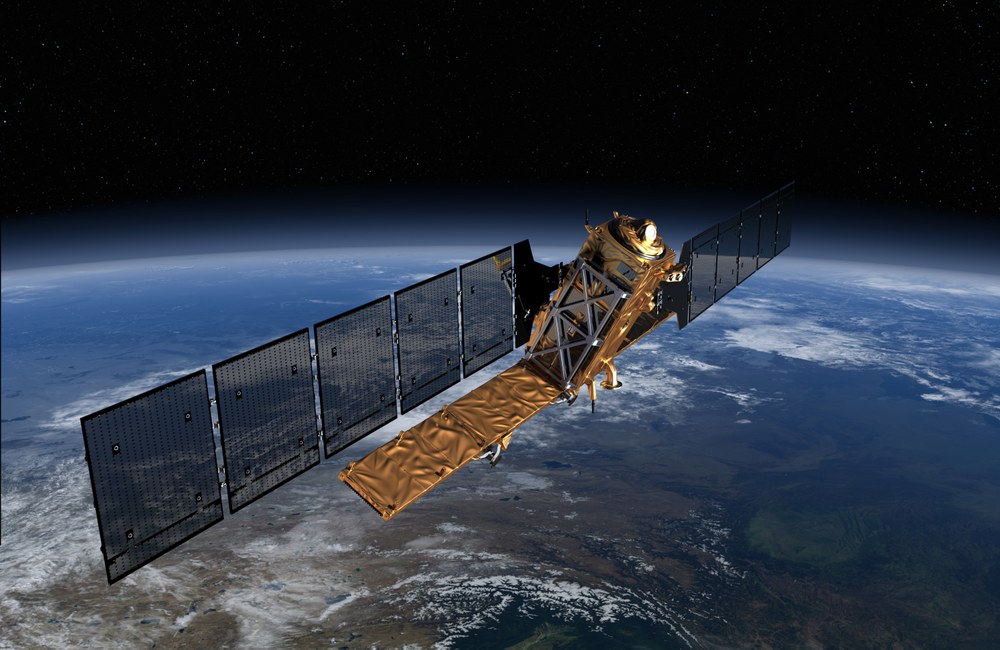Copernicus

Copernicus connects the potential of satellite-based earth observation with terrestrial, airborne, maritime and other data sources and modern data processing. The programme provides information services in six domains:
Land monitoring: The land monitoring service delivers geographic information on the characteristics and state of the land surface, including inland waters – from local to global scales.
Monitoring the marine environment: This service provides data and products supporting the implementation of the internationally agreed policies on marine protection. It also supports the protection of maritime sea routes and coastal areas. The data also contribute to weather and climate forecasts.
Monitoring the atmosphere: The service informs about the global distribution of atmospheric trace gases and aerosols (particulates). This serves in particular to support measures aiming to improve air quality and to document the effects of actions taken.
Supporting emergency and crisis management: Satellite-based information is used here for managing natural disasters like earthquakes, volcanic eruptions or flooding as well as humanitarian relief missions. Products include damage or reference maps, but also forecasts of flood extent along European rivers.
Monitoring climate change: This service is still under development. It supports European and national decision-makers in assessing the effects of climate change. Products support the development of adaptation strategies and corresponding political action.
Security: The security service is also still under development. It focuses on monitoring the EU’s external borders, maritime surveillance, and on supporting external action of the EU.
The information provided by these Services enable applications in a large number of public and economic domains, including the energy sector, agriculture, spatial planning, disaster response and transport.
The objectives of Copernicus at a glance:
- Building an independent European system for monitoring the global environment and security to support efficient and transparent political decisions in Europe
- Long-term provision of earth observation services, in particular at EU-level, but also in EU member states, that are used in public tasks and for meeting reporting obligations to the EU or the United Nations on environmental, spatial planning, transport and civil protection issues
- Delivering towards the aims of the Lisbon strategy by strengthening a European market for innovative space-based services
- A European contribution to international programmes, notably the Global Earth Observation System of Systems (GEOSS). GEOSS aims at meeting the information needs of international environmental conventions of the United Nations and supporting development in developing countries

